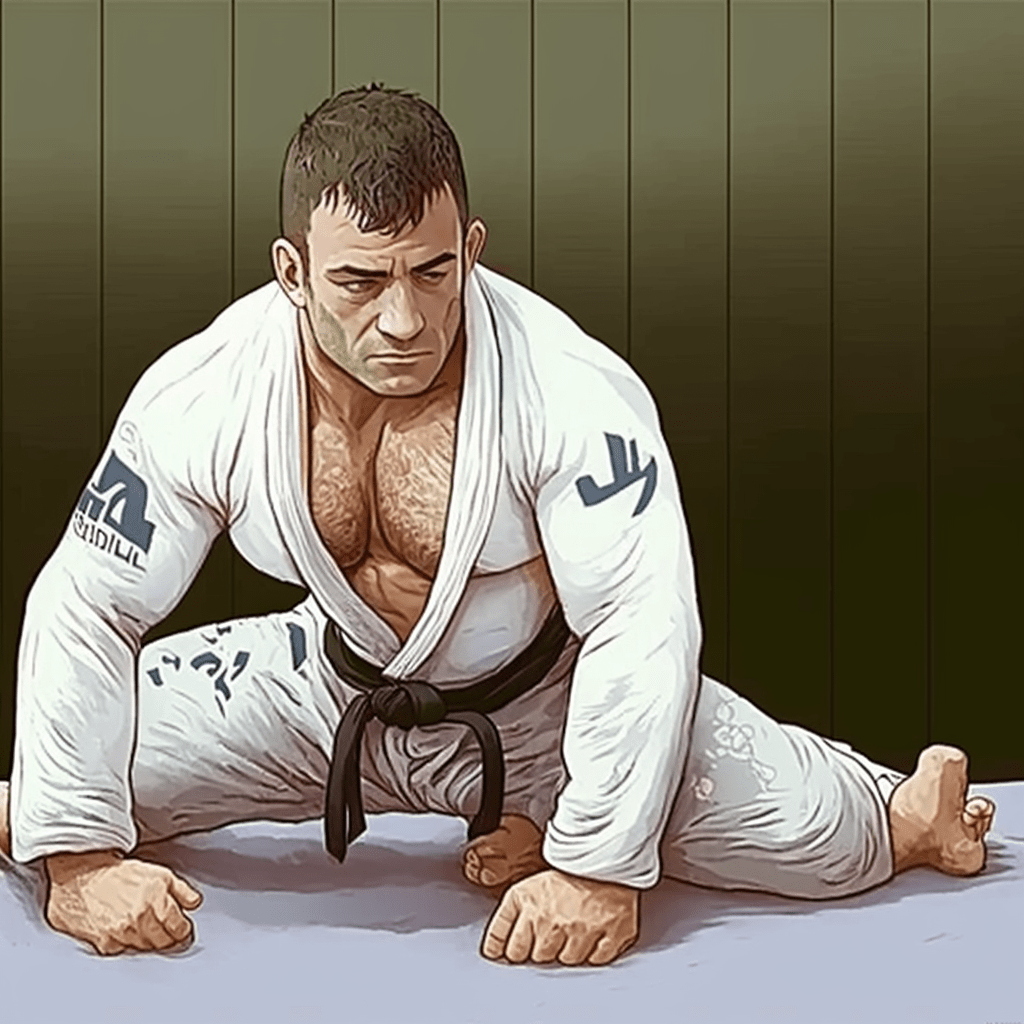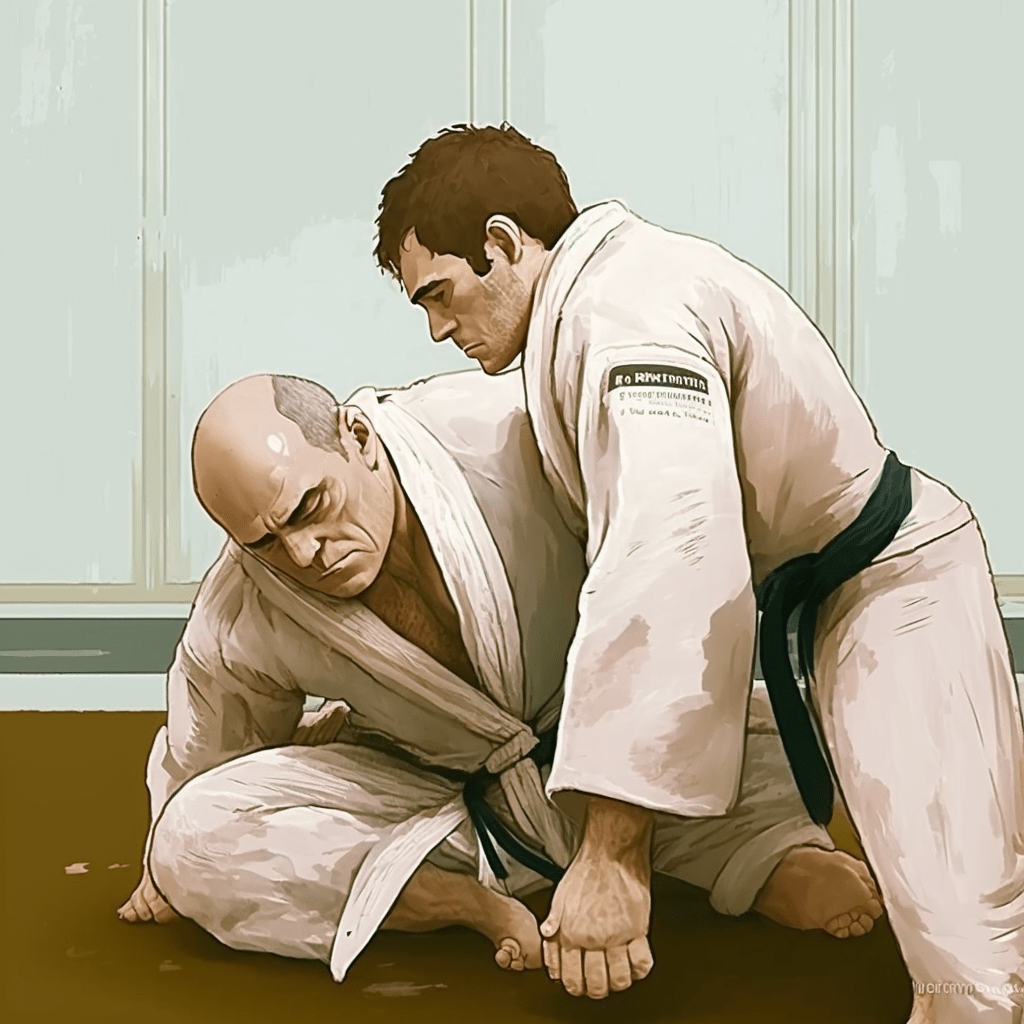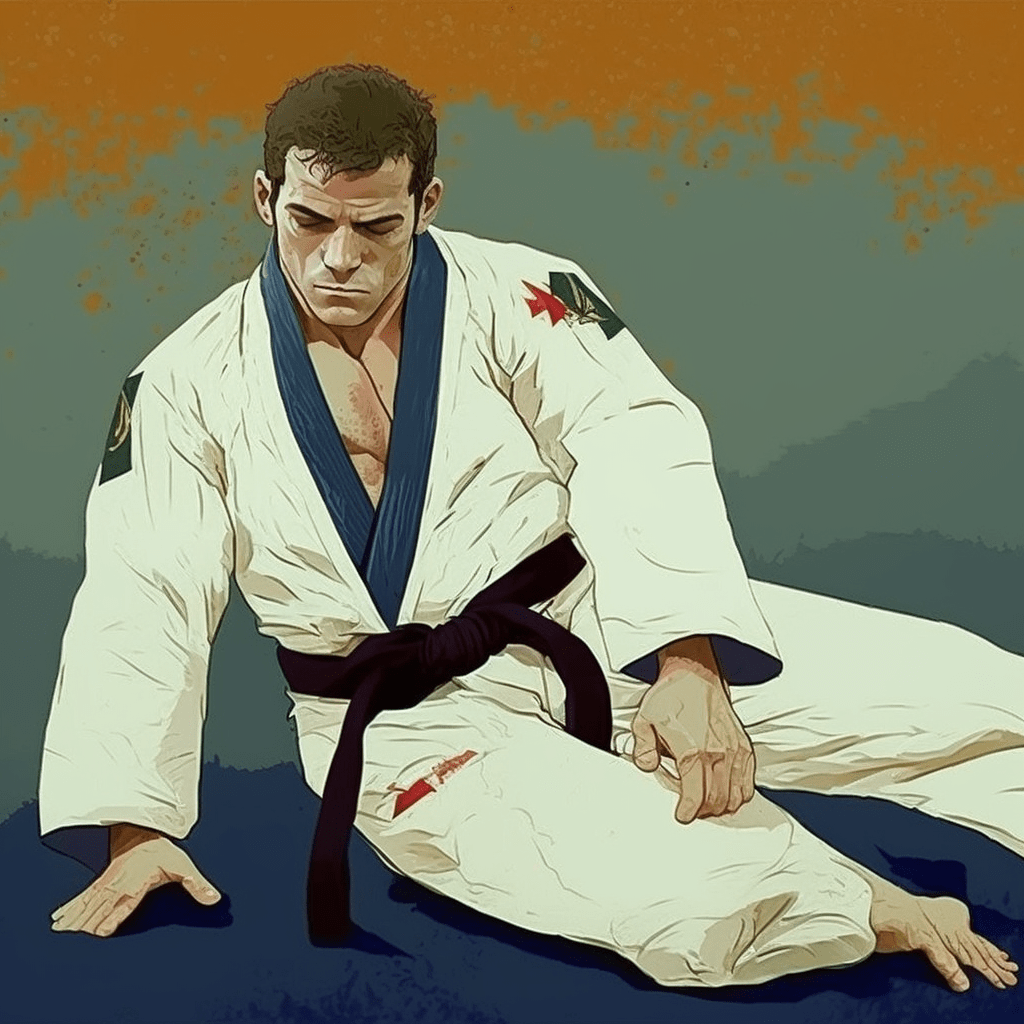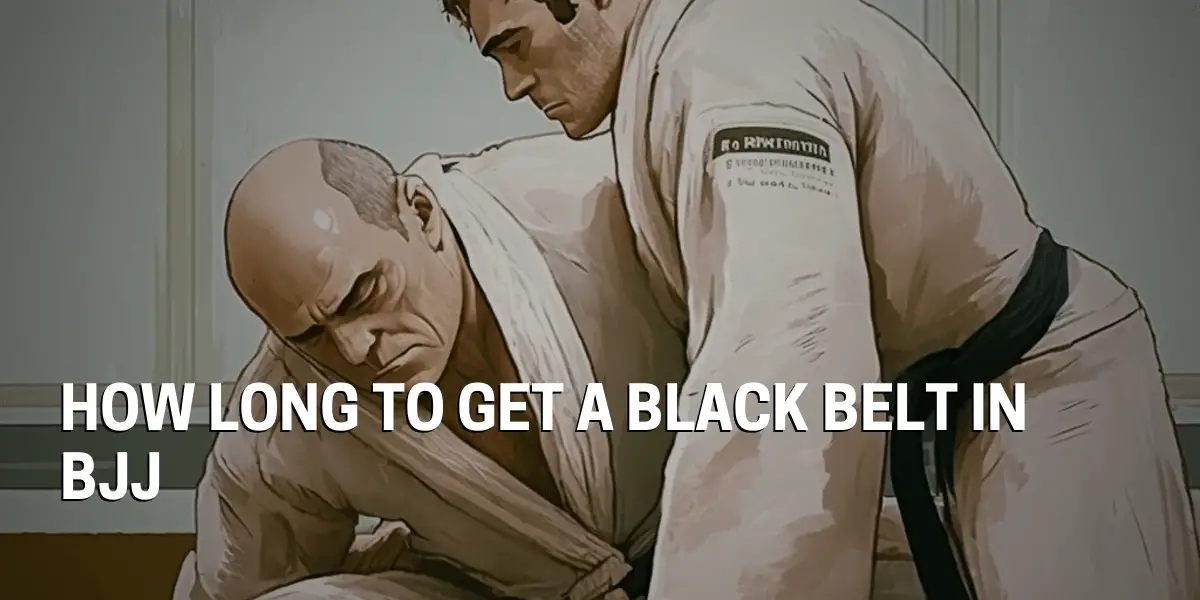What Is Required to Obtain a Black Belt in BJJ?
When it comes to earning a black belt in Brazilian Jiu-Jitsu (BJJ), one must be prepared to commit to an intense and dedicated journey. While the length of time to reach the coveted black belt level varies from person to person, there are certain requirements and expectations for those who want to pursue this path.
First, a good knowledge base of the techniques and positions of BJJ is essential for any aspiring black belt. Having a thorough understanding of the different moves and holds is a must for success, and it is important to have some competition experience to develop and refine these skills.
On top of a strong technical knowledge, physical conditioning is also an important part of the process. To obtain a black belt, one must possess the strength and endurance necessary to perform the techniques correctly and consistently. Achieving a high level of physical fitness is a key component of the BJJ journey.
Beyond technical and fitness requirements, having the ability to teach and mentor others is also highly desirable. Black belts are expected to be able to pass on their knowledge to the next generation of BJJ practitioners, and having the capacity to do so is a must.
Finally, respect for the martial art and its culture is essential. Black belt practitioners are expected to embody the spirit of the martial art, and that includes displaying respect to instructors, fellow practitioners and the art itself.

Training Requirements
The duration of this journey can range from three to five years, depending on the individual’s level of commitment and progress. Those who are serious about achieving a black belt should expect to train at least four to five times each week, for several hours at a time.
Not only is technical knowledge of the martial art essential, but physical conditioning is also key to success. On top of that, attending special seminars, staying up to date with the latest techniques and having the ability to teach and mentor others are all important components of the black belt journey.
Becoming a black belt in BJJ is a respected achievement and requires time, dedication and hard work. In order to reach this level, the martial artist must meet and maintain certain expectations.
Physical Requirements
In order to become a black belt in Brazilian jiu-jitsu, it takes more than just physical strength and stamina. Skill, knowledge, and the right mindset are also essential components of this martial art.
Becoming a black belt requires mastering a range of techniques, including throws, joint locks, and chokes. Practitioners must also understand the principles of leverage and positioning to be able to control and submit their opponents.
As well as technical knowledge, practitioners need to stay up to date with the latest techniques, attend seminars, and learn how to teach and mentor others.
Skill and Knowledge Requirements
Achieving a black belt in Brazilian jiu-jitsu requires more than just physical strength and stamina. How a practitioner approaches their training can be just as important to their success as the techniques they practice.
Mental strength and focus are essential, as practitioners must be able to endure the physical and mental stresses of training and competition.
Dedication and consistency to training is essential for achieving a black belt. Practitioners must also understand the fundamentals of the grappling techniques and the rules of BJJ.
Developing a knowledge of strategy and tactics is important for advancement in Brazilian jiu-jitsu. A willingness to learn and teach others is key to success.
Mental Requirements
Becoming a black belt takes more than physical strength and stamina, it also takes mental fortitude. It requires consistency in training, patience to master different techniques, and self-discipline to stay dedicated to the rigorous practice schedule.
Mental strength is paramount when facing challenges and obstacles. It is also vital in developing leadership and the ability to lead and help others get better.
The journey of becoming a black belt is long, and there will be many obstacles. It will require strength, determination, and perseverance.
But with dedication and hard work, the rewards are worth it. You will gain confidence, respect, and knowledge.
Are you up for the challenge?

Competition Requirements
Attaining a black belt in Brazilian Jiu-Jitsu is no easy feat. It takes dedication, resilience, and consistent practice. But why would someone be willing to put in the hard work necessary to become a black belt? Competition is an integral part of Brazilian Jiu-Jitsu, and black belts must demonstrate a certain level of experience in competition. To become a black belt, competitors must participate in two tournaments and compete in the highest level of their region. They must also demonstrate proficiency in Brazilian Jiu-Jitsu techniques.
To maintain their black belt status, competitors must demonstrate proficiency in all aspects of the martial art and attend at least one tournament every two years. Furthermore, a black belt must show a high level of knowledge of Brazilian Jiu-Jitsu techniques, terminology, and philosophy.
The process is long and arduous, but can be completed within four to six years of dedicated training.
How Long Does It Typically Take to Obtain a Black Belt in BJJ?
Attaining a black belt in Brazilian Jiu-Jitsu is a demanding challenge that requires intense dedication, focus, and commitment. How long does it typically take to obtain a black belt in BJJ?
It depends on many factors, including commitment, training intensity, and previous martial arts experience. The average time to obtain a black belt in BJJ is approximately 10 years.
However, the minimum time to obtain a black belt in BJJ is around 3-5 years. With hard work and dedication, some BJJ practitioners have been known to obtain their black belt in less than two years.
For competitors in BJJ tournaments, they may be promoted to black belt in a shorter amount of time depending on their achievements.
Ultimately, the time to obtain a black belt in BJJ varies for each individual, so it is important to stay focused and consistent in your practice.
Factors That Affect the Time Needed
Attaining a black belt in Brazilian Jiu-Jitsu is no easy task, and it requires intense dedication and discipline. The amount of time needed to achieve this feat varies from person to person, and is determined by a multitude of factors. Training frequency, mat time, and the ability to learn and retain techniques all play a part in the amount of time needed. Additionally, physical strength, age, competition experience, and the instructor’s experience and knowledge are all influential factors.
Inevitably, the amount of time required to obtain a black belt in BJJ will be different for each individual. Those who are able to dedicate more time to training, and are more physically fit, can expect to progress more quickly. On the other hand, those who have less experience and are less physically fit may require more time to reach the same goal. The key is to stay focused and consistent with your practice, and be aware of the factors that can affect the amount of time needed.
The next section will explore the estimated time required to obtain a black belt in BJJ.
Estimating Time Required
Attaining a black belt in Brazilian Jiu-Jitsu is no small feat, and requires a great deal of dedication, discipline, and hard work. The amount of time it takes to reach this level varies from person to person and is heavily dependent on multiple factors. Training frequency, mat time, and the ability to learn and retain techniques all play a part in the amount of time needed. Physical strength, age, competition experience, and the instructor’s experience and knowledge also play an important role in the time frame.
As such, the amount of time needed to achieve a black belt in BJJ is different for everyone. Those who are able to dedicate more time to training, and are more physically fit, can expect to progress more quickly. Conversely, those who have less experience and are less physically fit may require more time to reach the same goal.
It is important to stay focused and consistent with your practice, and be aware of the factors that can impact the amount of time needed. It is also beneficial to be aware of potential fast tracking opportunities or ways to shorten the amount of time needed to obtain the black belt.
In general, the estimated time frame to obtain a black belt in BJJ is between 3-5 years. Of course, some may reach this level in a shorter amount of time, while others may take longer. It is important to develop a training plan that works best for you and to keep track of your progress.

Developing a Training Plan
Frequency is an important factor in any training plan. This includes the number of days per week you are training, the length and intensity of each session, and how often you take breaks. Having a clear plan can help keep you motivated and on track.
Goals are also a crucial component of any training plan. Set realistic, achievable goals and establish a timeline to help you measure your progress. Be sure to evaluate your goals regularly and make adjustments as needed.
Nutrition is an often-overlooked piece of the puzzle. A well-rounded diet that is rich in protein and other essential nutrients is key for optimal performance. Consider adding nutritional supplements to your diet to ensure you get the necessary nutrients and vitamins.
Rest is just as important as training. Make sure you are taking regular breaks and allowing for adequate recovery time. This will help you avoid burnout and stay focused on your goals.
Having a support system of family and friends is also important. Having someone to cheer you on and keep you motivated can make all the difference.
Reaching out to experienced black belts can be extremely helpful in achieving your goals. They can provide guidance and offer advice on how to effectively reach your goals.
Prioritizing Goals
Achieving a black belt in Brazilian Jiu-Jitsu is a long and challenging journey, but with the right plan and dedication, it can be conquered. It is important to prioritize goals and remain dedicated to the process.
Setting short-term goals and having a strong support system can help keep one focused and motivated. As well, time management and self-belief are essential for staying on track.
Patience is also key, as it can take years to reach the desired level. But with the proper discipline, anyone can reach their goal of obtaining a black belt in BJJ.
Setting Milestones
Reaching a black belt in Brazilian Jiu-Jitsu is a long and rewarding journey, and setting milestones is a great way to stay motivated and focused on the task at hand. Why not break down the larger goal of reaching a black belt into small, achievable goals?
Establish a timetable for meeting each milestone while allowing yourself the flexibility to adjust it as needed. Consistency is also key, so setting aside dedicated time each week for training and practice is essential.
Celebrating each milestone achieved is a great reward for all the hard work and dedication that has gone into the process. Make yourself accountable to someone else, such as a coach or mentor, to ensure that you stay on track with the milestones you have set for yourself.
Life can often get in the way, so be prepared to adjust your milestones and timetable as needed. It is important to recognize the progress you have made and to stay committed to the process.
The Process of Moving Up the Belt Ladder
To progress from a blue belt to a higher rank, such as a purple belt, a practitioner must demonstrate mastery of the techniques and skills associated with the belt. Promotion tests generally occur every two to three years.
Consistent training is crucial for successful advancement in BJJ. Setting aside dedicated time each week for training and practice is essential for continued progress. Celebrate each milestone achieved as a reward for all the hard work and dedication.
Make yourself accountable to someone else, such as a coach or mentor, to ensure that you stay on track with the milestones you have set for yourself. The amount of time needed to obtain a black belt in BJJ varies from person to person.
Life can often get in the way, so be prepared to adjust your milestones and timetable as needed. It is important to recognize the progress you have made and to stay committed to the process.

White Belt
Generally speaking, it takes a minimum of three months to achieve a white belt with consistent practice. This entry-level of knowledge and understanding of BJJ is acquired through completing 10-15 classes.
The white belt signifies the beginning of a journey of self-discovery, growth, and mastering techniques, drills, and sparring. With dedication, a white belt can open the door to the world of BJJ and help a student progress.
It is important to recognize the progress made in BJJ and to stay committed. Setting aside dedicated time each week for practice is essential for successful advancement. Mentorship and guidance from a higher-level practitioner can also be of great help in achieving a higher rank.
Blue Belt
The blue belt is the second belt level in Brazilian Jiu-Jitsu and typically takes anywhere from one to two years of regular training to achieve. Students must demonstrate a mastery of the fundamental techniques and positions of BJJ to receive their blue belt, which includes passing a minimum number of classes and drills. Once they have achieved this level, they will have a good understanding of the basics of BJJ and will be able to defend themselves in most situations.
In addition to technical proficiency, blue belt students must be able to demonstrate a variety of techniques such as submissions, escapes, and guard passes. They must also demonstrate a high level of physical fitness, as well as the ability to roll with more experienced practitioners. A strong grasp of the principles of Brazilian Jiu-Jitsu is also essential.
Purple Belt
When it comes to Brazilian Jiu-Jitsu (BJJ), achieving a purple belt is no small feat. On average, it takes a minimum of two years of consistent training to reach this level of expertise. Achieving a purple belt signifies that the practitioner has attained a strong base of knowledge in BJJ and has achieved a certain level of physical and mental maturity in the sport.
At the purple belt level, practitioners are expected to have proficiency in advanced techniques, a high level of proficiency in self-defense techniques, and have developed leadership skills. These skills are essential for them to be able to pass on their knowledge to other practitioners.
Furthermore, purple belts must demonstrate a commitment to the art and a strong grasp of the principles of Brazilian Jiu-Jitsu. These skills and knowledge will aid them in their journey to the next level of BJJ: the brown belt.
Brown Belt
It takes a great deal of dedication and hard work to reach this level of expertise, and practitioners must be willing to commit to at least two to three years of consistent training and studying.
They must demonstrate a mastery of techniques, as well as a strong understanding of the underlying principles of BJJ.
Furthermore, Brown Belts must have a complete understanding of the self-defense system, be able to teach and communicate the techniques they have learned effectively, and have a clear understanding of the rules and regulations of BJJ tournaments.
In addition, they must be strong competitors in BJJ tournaments and capable of competing against black belts.
Black Belt
To reach this level of expertise, practitioners must adhere to certain standards and be willing to commit to consistent training and studying. To be eligible for a Black Belt, one must demonstrate a mastery of techniques, have a strong understanding of the underlying principles of BJJ, and be able to teach and communicate effectively.
In addition, they must have a clear understanding of the rules and regulations of BJJ tournaments and be a strong competitor. The process of earning a Black Belt is a long and arduous journey, but the rewards are substantial.
The benefits of a Black Belt include respect, knowledge, and a sense of accomplishment. Furthermore, the rank of Black Belt is a sign of mastery in BJJ, and is highly sought after by martial arts practitioners.
Tips for Accelerating the Process
Reaching the rank of Black Belt in Brazilian Jiu-Jitsu (BJJ) is a goal that few martial artists set for themselves due to the dedication and hard work required. To obtain this level of expertise, practitioners must adhere to certain standards and commit to consistent training and studying. Why not take steps to accelerate the process? Here are seven tips for those who want to reach the Black Belt level faster.
First, find an instructor who can provide quality guidance and instruction. A good teacher can help you understand the principles of BJJ and give you the skills and confidence to reach the Black Belt level. They can also provide feedback and help you stay motivated.
Second, set goals and have a clear plan for reaching them. This will help you stay focused and motivated, and will also help you track your progress.
Third, take regular classes and take advantage of any additional training opportunities. Taking classes regularly will help you develop and hone your BJJ skills. Additionally, attending seminars and competing in tournaments can give you the experience and confidence you need.
Fourth, learn from your mistakes and use them to refine your techniques. Don’t be afraid to make mistakes and use them to improve your skills.
Fifth, stay in shape and work on your physical conditioning. Staying fit will help you perform better in competition and classes.
Sixth, be consistent in your practice and never stop learning. Consistency is key to earning a Black Belt, so don’t give up!
Finally, be open to new ideas and techniques. Learning new techniques and strategies can help you reach your goals faster.
Increase Training Frequency
It is a long and arduous journey to achieve a black belt in Brazilian Jiu-Jitsu (BJJ). Increasing training frequency is one of the most important steps in this process. A good way to increase training frequency is to set realistic goals and stick to them. Warm up properly before each training session and vary the training to include a variety of techniques. Cross-training with other martial arts can also be beneficial for increasing skill level.
Focusing on proper form and technique during each session is essential for reaching black belt status. It is also important to practice with a variety of partners so as to better understand the techniques. Practicing in a competitive setting can also help to hone the skills needed to be a black belt. As with any martial art, practice and dedication are the key to success.
Focus on Technique
Learning the techniques of BJJ is essential for any practitioner hoping to reach this level. It takes a lot of practice and dedication to master the techniques of BJJ, and key to success is practicing the techniques properly and consistently.
Moreover, a good understanding of the principles and concepts of BJJ is necessary. With a commitment to the training and dedication to the craft, a dedicated student can become a black belt in BJJ within 4-6 years.
Set Goals
How can one set such goals? First, it is important to consider the amount of time one can dedicate to training and set a realistic timeframe for reaching their goals. Breaking down goals into smaller, achievable steps can help keep the practitioner motivated and on track. Patience is essential to understand that attaining a black belt in BJJ is a long process. Consistency in training and focusing on the long-term goal is important. Taking time to reflect on progress and adjusting goals as needed can be very beneficial. Having a support system of positive people who can help keep a practitioner motivated and on track is essential. With all these elements in place, a student can be well on their way to achieving a black belt in BJJ.
Learn from Experienced Practitioners
When aspiring to reach a black belt in Brazilian Jiu-Jitsu, it is important for practitioners to take the necessary steps to achieve their goals. Finding an experienced teacher can be done by researching schools and instructors, as well as attending seminars and workshops.
It is also important to network with other practitioners to learn from their experience and gain insight into their training methods. Making connections with experienced practitioners and asking questions about the school and instructors prior to enrolling in classes can be beneficial.
With all these elements in place, it is possible to have a successful journey to a black belt in BJJ.
Take Time to Reflect
Reaching a black belt in Brazilian Jiu-Jitsu is an ambitious goal. It takes time, commitment and perseverance to achieve. To make the process more successful, taking time to reflect on progress and set tangible goals can help keep motivation levels high.
Celebrate progress, evaluate weaknesses, refocus on goals and remain positive throughout the journey.
Above all, remember that patience is key.
Conclusion
In the world of Brazilian Jiu-Jitsu, a black belt is the highest rank achievable. For most practitioners, it takes years of hard work and dedication before they can proudly call themselves a black belt. It can take anywhere from eight to ten years to become a black belt, but with the right attitude and commitment, some can obtain it in less time.
However, the journey is just as important as the end goal. Becoming a black belt requires mastering the skills and discipline of the martial art, and that can be a rewarding experience in itself.
The path to a black belt is a unique journey, and no two practitioners will take the same amount of time to reach it. We must understand that hard work and dedication are the keys to success.
Summary
How much time is needed to earn a black belt in Brazilian Jiu-Jitsu (BJJ)? It is no secret that earning a black belt in BJJ requires a great deal of commitment, dedication, and hard work. Depending on the individual, it can take anywhere from 8 to 10 years to achieve a black belt in BJJ. Age, physical fitness, and level of dedication are just some of the factors that can influence the amount of time needed to reach this goal.
In addition to this, it is important to understand the belt system used in BJJ and what each belt level represents. There are several levels of belts, with the lowest being the white belt and the highest being the black belt.
In order to stay motivated and focused on achieving a black belt in BJJ, there are a few tips that can be beneficial. Firstly, it is important to set realistic goals and to track your progress. It is important to stay focused and to remain positive. Additionally, it is important to make the most of your training sessions by focusing on technique and drilling regularly. Finally, it is important to seek out the advice of experienced practitioners in order to further your skillset.
All in all, earning a black belt in BJJ is no easy feat. It requires dedication, hard work, and patience. With the right attitude and commitment, however, it is possible to achieve this goal.
Final Thoughts
Achieving a black belt in Brazilian Jiu-Jitsu (BJJ) is a long and challenging process. It requires an immense level of commitment, hard work, and perseverance. The exact timeline for when and how long it will take for an individual to obtain a black belt in BJJ can vary greatly. Everyone’s journey to black belt is unique, but it is generally accepted that it takes most people at least five to ten years to reach this level.
It all comes down to the individual’s commitment and dedication to the sport. It is a long and rewarding journey, but with the right attitude and dedication, it can be achieved. When it comes to the amount of time it takes to obtain a black belt in BJJ, there are many factors that need to be taken into account.
When it comes to earning a black belt in Brazilian Jiu-Jitsu, the most important thing to remember is that it takes hard work, dedication, and patience. With the right attitude and commitment, it is possible to achieve this goal in less time.
FAQs
Q. What are the differences between the different belt levels?
The belt system in BJJ is a great way to track progress and measure success in the martial art. Each belt level covers an increasingly advanced set of techniques, from basic self-defense moves to complex submissions.
As a student progresses through the belt system, they will be expected to demonstrate an increasing mastery of the material. As a student advances to higher belt levels, the amount of time needed to achieve their black belt increases.
Earning a black belt in BJJ requires a deep understanding of the techniques and principles of the martial art, as well as a significant amount of training and dedication in order to achieve.
Black belt is seen as a symbol of mastery of the art, and is a goal that many students strive for.
Q. What is the difference between BJJ and other martial arts?
Brazilian Jiu-Jitsu (BJJ) is a martial art that is growing in popularity around the world. This is due to the fact that it offers an effective self-defense system and provides practitioners with the opportunity to compete in various forms of competition. But what makes BJJ so different from other martial arts?
First, there is the difference between the focus of BJJ and other martial arts. BJJ is a grappling-based art, meaning it places emphasis on ground fighting and submission holds. These techniques are not traditionally taught in other martial arts, which are more focused on standing techniques such as striking and blocking. BJJ also emphasizes position and technique over strength and power, which makes it accessible to people of all sizes and ages.
Another major difference between BJJ and other martial arts is the emphasis on sparring and live training. BJJ places a much greater emphasis on live training than other martial arts, allowing practitioners to become more familiar with the range of techniques. This is particularly important in BJJ as it allows practitioners to put the techniques they have learned into practice and refine their own skills.
Overall, BJJ is a very versatile martial art that provides practitioners with an effective self-defense system and the opportunity to compete in various forms of competition.
Q. How often should I train to get a black belt?
Achieving a black belt in Brazilian Jiu-Jitsu (BJJ) is a daunting task that requires dedication, commitment, and hard work. How often one should train to get a black belt depends on the individual and their training routine.
Generally, it takes an average of 8-10 years of consistent training to reach a black belt in BJJ. However, some people can achieve the black belt in less time with more intensive training.
To get to the black belt level, it is important to commit to regular training, have a good understanding of the techniques, and be dedicated to mastering the art of BJJ.
The training schedule should include techniques, drills, and sparring sessions on a regular basis. It is also essential to remain consistent and stay motivated throughout the journey of obtaining a black belt in BJJ.
Q. What are the benefits of training for a black belt?
We all know obtaining a black belt in Brazilian Jiu-Jitsu (BJJ) is a difficult and lengthy process, but it is also highly rewarding. Training for a black belt provides practitioners with a wide range of benefits.
Becoming a black belt in BJJ gives practitioners a sense of accomplishment and personal growth. It also helps develop physical and mental strength, discipline and focus.
Through training for a black belt, practitioners can acquire knowledge and skills that can be applied to other aspects of life, such as self-defense and competition. Training for a black belt can also help increase flexibility, agility, and coordination.
It can also reduce stress, improve self-confidence and provide a sense of purpose. Earning a black belt in BJJ is also a great way to build a strong network of like-minded individuals.
Q. What are the requirements for obtaining a black belt?
It takes dedication, determination, and hard work to obtain a black belt in Brazilian Jiu-Jitsu (BJJ). For aspiring black belts, the journey can be long and arduous, but the rewards are great.
Achieving a black belt requires rigorous dedication to training and study. Practitioners must acquire knowledge of techniques, strategies, and the rules of the sport.
Achieving a black belt usually requires a minimum of five to six years of consistent training. In addition to technical proficiency, black belts must also demonstrate a level of maturity, a good attitude, leadership, and good sportsmanship.

